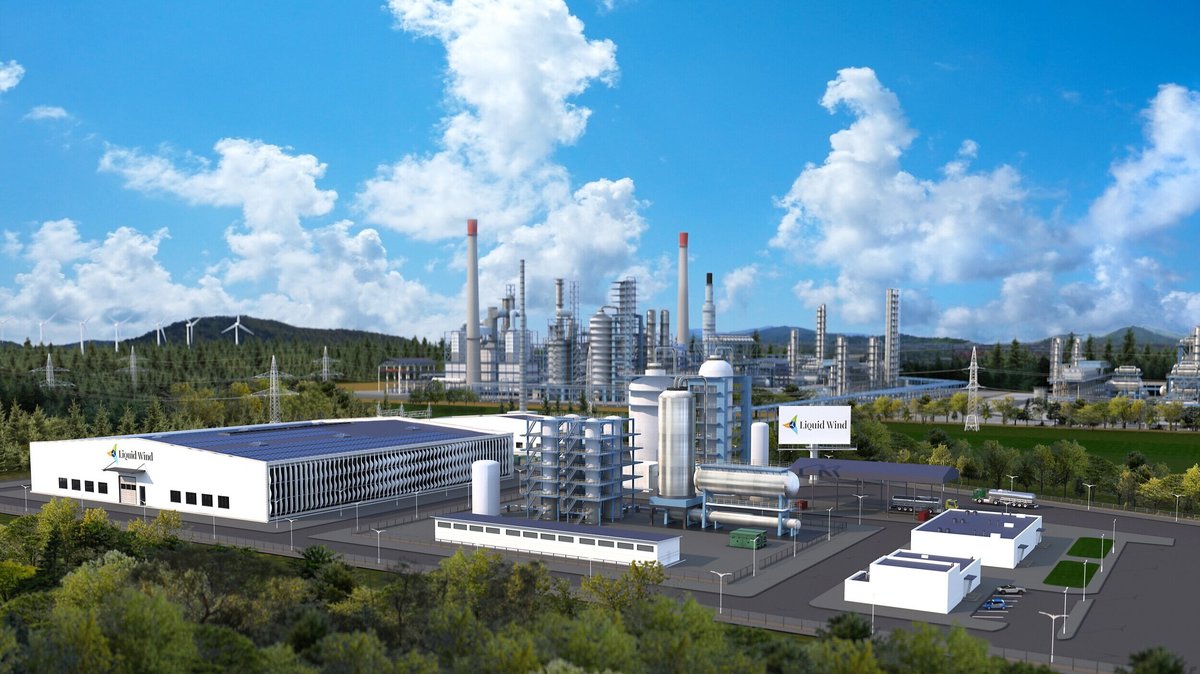Majority of EU green marine fuel projects risk delays beyond 2030 – T&E
Around 66% of the total e-fuel projects proposed in the EU may not be operational in this decade, a recent Transport & Environment (T&E) study warned.
 PHOTO: Orsted's FlagshipONE in Örnsköldsvik, Sweden, will produce 50,000 mt/year of e-methanol for shipping. Liquid Winds
PHOTO: Orsted's FlagshipONE in Örnsköldsvik, Sweden, will produce 50,000 mt/year of e-methanol for shipping. Liquid Winds
The study suggests that just 30% of the total planned e-fuel projects in the EU are guaranteed to be operational within this decade, as fuel suppliers show reluctance to invest in new projects.
The T&E survey covered 61 synthetic fuel or e-fuel projects throughout the EU. E-fuels are non-fossil fuels produced using green hydrogen and carbon dioxide (CO2) as feedstock. These are green hydrogen and its derivatives, including green ammonia, e-methane and e-methanol.
Among them, 17 projects focus exclusively on the shipping industry, the T&E report stated. A majority of these 17 projects are still in the discussion phase, with only six having been decided. The study showed that six projects will produce only 79,000 mt/year of e-fuel by 2026.
At present, no shipping-focussed projects are operational in the EU, the report stated.
In addition, 25 projects identify shipping as a potential market, but have not specified clear preferences or allocated capacities for shipping. The remaining 19 projects have not committed beyond the "general" transport sector but could produce maritime e-fuels if needed.
This indicates that “currently confirmed e-fuels projects will not produce sufficient volumes to reach the 1% uptake threshold by 2031 (0.28 Mtoe) [0.28 million tonnes of oil equivalent] and will fall short of meeting the expected demand in later years, as much larger amounts of green fuels will be required to meet FuelEU targets.,” T&E said.
The study further claimed that more than half of the total 61 projects are “at risk” of scaling down the planned capacity or being delayed beyond their committed timelines. The primary reason could be that fuel suppliers are hesitant to invest in projects without assurances that shipping will need the capacity in the future, according to T&E.
“This means the vast majority of projects may never come online in this decade, putting Europe’s climate ambitions and thousands of jobs at risk,” T&E warned.
There are a growing number of project proposals in the EU that can theoretically help decarbonise shipping, but “at the moment there just isn’t enough certainty and we risk missing this golden opportunity,” Inesa Ulichina, shipping officer at T&E concluded.
By Konica Bhatt
Please get in touch with comments or additional info to news@engine.online






